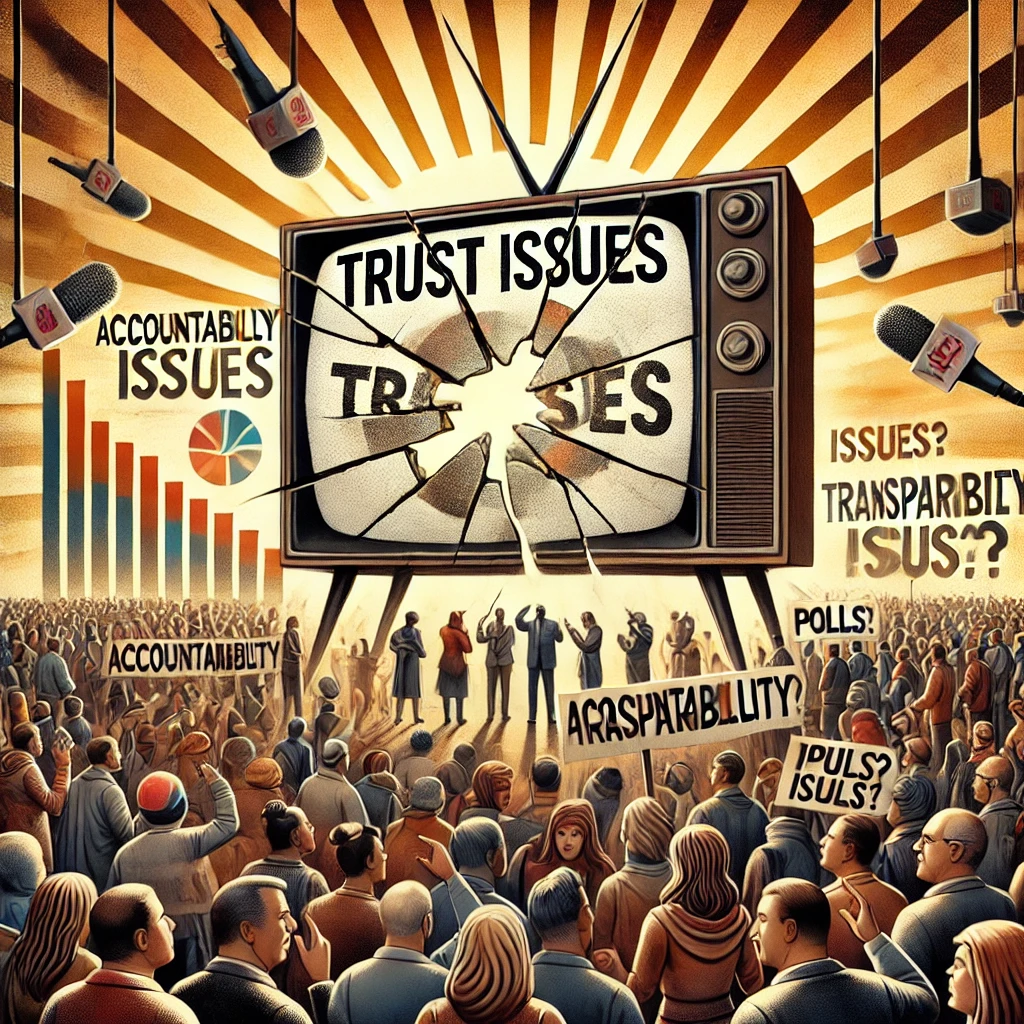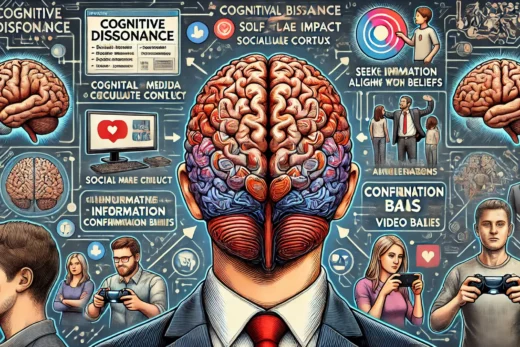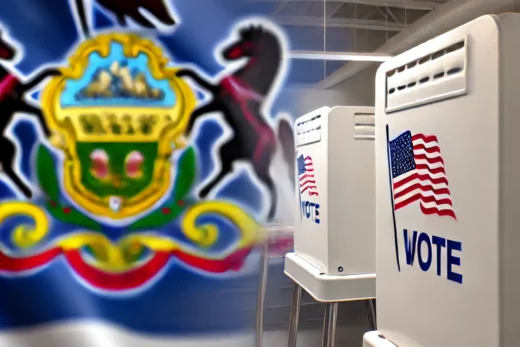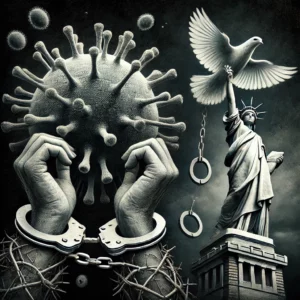
Over the past several years, trust in mainstream media and political polling has faced unprecedented challenges. This growing skepticism isn't confined to one political side but has permeated across the spectrum, leaving a fractured public grappling with questions of accountability, transparency, and fairness in how information is reported. Let's dive into the key events and controversies fueling this crisis.
The Fallout from the 2024 Election
The 2024 election has delivered one of the most catastrophic political defeats in modern U.S. history, leaving the Democratic Party in turmoil and its most ardent supporters reeling. The scale of the loss, punctuated by Kamala Harris's failed reelection bid, has sent shockwaves through the party, with many far-left individuals and Harris supporters expressing outrage, disbelief, and denial.
Prominent Democratic strategist James Carville has openly criticized suburban women voters, blaming them for the party’s devastating losses. This finger-pointing underscores a deeper crisis within the Democratic establishment, revealing its frustration with voter demographics that have historically been key to its victories. The party's failure to connect with suburban voters—once considered a reliably Democratic base—has become a glaring issue, signaling the urgent need to rethink its strategies.
Adding to the chaos, election denialism—long associated with conservative narratives—has now emerged among far-left circles. Many Democrats are questioning the legitimacy of Donald Trump’s stunning victory, sparking widespread unrest within progressive ranks. Social media platforms are flooded with claims of voter suppression, polling inaccuracies, and conspiracy theories, highlighting how distrust in electoral outcomes has become a bipartisan phenomenon.
For Harris supporters and far-left activists, the election has become a bitter pill to swallow. Many are losing their minds over what they see as a betrayal of progressive ideals and a rejection of their vision for the country. Protest movements, calls for investigations, and emotional outbursts have dominated the post-election landscape, painting a picture of a political movement in crisis.
This fallout has exposed a fractured Democratic Party, struggling to reconcile its progressive and moderate wings while grappling with the reality of shifting voter priorities. As the dust settles, the question remains: Can the party rebuild and adapt, or will it continue to splinter under the weight of its internal divisions and external defeats?
The Polling Industry Under Fire
Polling controversies have only exacerbated this mistrust. Ann Selzer, a respected pollster, has faced intense scrutiny from former President Trump and his allies, accusing her of releasing unreliable polling data before the Iowa caucuses. These accusations come on the heels of past incidents, like Braun Research (Fox News’ polling company) allegedly misrepresenting public opinion during Trump’s impeachment hearings.
Such disputes highlight an uncomfortable reality: the public’s trust in polling as a reliable barometer of public opinion has diminished. Accusations of bias, flawed methodologies, and intentional manipulation have plagued the industry, leaving many questioning whether polls are tools for understanding voter sentiment—or shaping it.
Mainstream Media: An Eroding Pillar of Trust
Over the past decade, mainstream media (MSM) has increasingly come under fire for repeated instances of misreporting, biased narratives, and outright fabrications that have shaken public confidence. These controversies aren’t isolated events but rather a troubling pattern that reflects deeper systemic issues in how information is gathered, vetted, and disseminated. Let’s break down some of the most notable instances where MSM was caught lying or misleading the public.
1. The Steele Dossier and Russia Collusion Narrative
One of the most high-profile examples was the promotion of the Steele Dossier, a document that became the foundation for years of reporting on alleged collusion between Donald Trump and Russia. Mainstream outlets like CNN, MSNBC, and others ran with stories based on unverified claims from the dossier, often presenting them as facts. Later investigations revealed significant inaccuracies in the dossier, and key claims were debunked. Yet, the damage to public trust was already done, as millions of viewers had been fed a narrative that turned out to be largely unfounded.
2. Covington Catholic High School Incident
In 2019, media outlets such as The Washington Post and CNN were quick to accuse a group of Catholic high school students of racism following a viral video of a confrontation with a Native American activist at the Lincoln Memorial. The initial reports painted the students—particularly Nick Sandmann—as aggressors. However, extended footage revealed that the students were not the instigators and had, in fact, been harassed by another group prior to the incident. MSM faced lawsuits for their misrepresentation of the story, with some outlets eventually settling for defamation.
3. “Hands Up, Don’t Shoot” Narrative
Following the 2014 shooting of Michael Brown in Ferguson, Missouri, the media widely reported that Brown had his hands up and was pleading "don't shoot" before being killed. This claim became a rallying cry for protests nationwide. However, a Department of Justice investigation later found that this narrative was not supported by the evidence or eyewitness accounts. Despite the correction, the initial falsehood had already entrenched itself in the public consciousness.
4. Hunter Biden’s Laptop Scandal Suppression
In the lead-up to the 2020 presidential election, The New York Post broke the story of Hunter Biden's laptop, which contained emails suggesting potential corruption involving his father, Joe Biden. Mainstream outlets, including CNN and The New York Times, largely dismissed the story as "Russian disinformation," a claim that was echoed by intelligence officials. It was only after the election that several MSM outlets admitted the laptop and its contents were legitimate, raising questions about their motives in suppressing the story.
5. COVID-19 Origin Reporting
At the onset of the COVID-19 pandemic, mainstream media largely dismissed the possibility of a lab leak as a conspiracy theory, favoring narratives of natural zoonotic origins. Outlets like CNN and The Washington Post ridiculed those who questioned this stance. However, subsequent investigations, including those by government agencies, have shown that the lab-leak theory is not only plausible but remains one of the leading hypotheses for the virus's origin. This shift has led many to question why MSM initially rejected the theory so vehemently.
6. Jussie Smollett Hoax
When actor Jussie Smollett claimed to be the victim of a hate crime in 2019, MSM outlets quickly amplified his story without critical scrutiny. Networks like ABC and The New York Times gave extensive coverage to Smollett’s claims, often framing them as emblematic of rising hate crimes. It was later revealed that Smollett staged the incident, leading to his conviction for filing a false police report. MSM faced backlash for their failure to investigate before running with the story.
7. Polling Misrepresentation
Polling has long been a tool wielded by MSM to shape narratives, but its credibility has been repeatedly undermined. Instances such as Fox News’ polling company, Braun Research, allegedly misrepresenting Trump impeachment support, or Ann Selzer being accused of releasing skewed Iowa caucus polls, have contributed to a broader distrust of media-driven data. These examples highlight how polling can be weaponized to influence public perception rather than reflect reality.
8. Kyle Rittenhouse Trial Coverage
During the trial of Kyle Rittenhouse, MSM outlets like MSNBC and CNN painted Rittenhouse as a violent instigator. They often omitted critical details, such as evidence that he acted in self-defense during the Kenosha riots. Following Rittenhouse's acquittal, many criticized the media for its biased and incomplete reporting, which likely shaped public opinion against him before the facts were fully understood.
A Pattern of Erosion
These examples are just the tip of the iceberg. The repeated failures of mainstream media to uphold journalistic integrity have created a pervasive sense of distrust among the public. From selectively reporting facts to pushing politically convenient narratives, MSM has shown a troubling tendency to prioritize sensationalism and agenda-driven coverage over objective truth.
The consequences are dire:
- Polarized Public Opinion: Misinformation and biased reporting deepen political divides.
- Erosion of Democratic Institutions: Trust in elections, courts, and other pillars of democracy is undermined when media narratives distort facts.
- Shift to Alternative Media: Frustrated audiences are turning to independent platforms, which can sometimes lack the accountability of traditional outlets, further fragmenting the information ecosystem.
Mainstream media has long claimed to be a cornerstone of democracy. To live up to that role, it must confront its failures, rebuild its credibility, and commit to the principles of fair and accurate reporting. Until then, the public’s skepticism will remain well-founded.
Breaking It All Down
The controversies surrounding media and polling represent a perfect storm of public distrust:
-
Erosion of Trust Across the Board: Mistrust isn’t isolated to one party or ideology anymore. Whether it’s Democrats grappling with suburban voter losses or Republicans challenging polling integrity, both sides share growing skepticism of institutions once considered authoritative.
-
Polling as a Battleground: Polling data, once a neutral tool for gauging public opinion, has become a contentious point. Questions about methodology and transparency are driving calls for industry reform.
-
Media Under Scrutiny: Mainstream media's reliance on questionable polls has left it vulnerable to criticism. Public frustration with perceived bias is spurring a shift toward independent sources, but this fragmentation risks further polarizing the information landscape.
-
Bipartisan Election Doubts: The 2024 election has revealed an uncomfortable truth—both sides of the political spectrum are questioning the fairness of the system. This shared discontent reflects deeper issues with trust in democratic institutions.
Where Do We Go From Here?
Restoring trust in media and polling will require a multi-faceted approach aimed at rebuilding credibility, fostering transparency, and promoting accountability. Here's what needs to happen:
- Transparency in Polling: Polling companies must prioritize clarity in methodology, openly address criticisms, and ensure their data is accurate and free from manipulation.
- Accountability in Media: Mainstream outlets need to commit to unbiased reporting, avoid amplifying flawed data, and implement rigorous fact-checking processes to ensure that stories are accurate before publishing.
- Acknowledge Bias: Media organizations should be transparent about their political leanings and funding sources. This honesty can help foster trust by giving the public a clearer understanding of potential perspectives behind the reporting.
- Public Education: Helping the public understand how polling works, how media narratives are crafted, and how to identify misinformation can promote informed skepticism without leading to outright distrust.
- Correct Mistakes Promptly: When errors occur, they must be corrected with the same prominence as the original reports to mitigate misinformation and demonstrate accountability.
By adopting these measures, the media and polling industries can begin to rebuild their role as trusted institutions. It will take time, but the benefits—a more informed, united, and trusting public—are well worth the effort.
Ultimately, these challenges present an opportunity. By addressing the root causes of public dissatisfaction, institutions can begin rebuilding trust and credibility. But it will require a willingness to listen, a
dapt, and prioritize integrity above partisanship.
#MediaTrust, #FakeNews, #MediaBias, #PollGate, #JournalismEthics, #NewsIntegrity, #MediaAccountability, #TrustInMedia, #PollingAccuracy, #MediaTransparency








